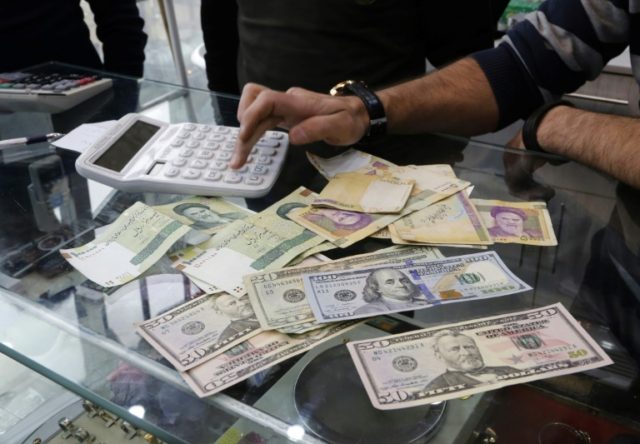Tehran (AFP) – Renewed nuclear sanctions would certainly cause severe problems for Iran’s economy, but much of the damage has already been done by the uncertainty created by the US and myriad home-grown problems.
It was awkward timing for the annual International Oil Show in Tehran this week, which opened just two days before US President Donald Trump was due to make his decision on whether to rip up the 2015 nuclear deal and reimpose sanctions on Iran.
“The atmosphere was grim,” said a European consultant who attended the conference on Monday.
“There were fewer foreigners, the stands were smaller, it was depressing.”
Organisers admitted that foreign guests were down by a third compared to last year, according to the Hamshahri newspaper.
The only major oil deal that Iran has landed since the nuclear deal was a $5 billion exploration agreement with France’s Total and China’s CNPC last year, but its future hangs in the balance as executives wait to see what Trump will do.
Foreign banks remain terrified of touching any transaction even cursorily linked to Iran, even after they have been encouraged by their respective governments to facilitate trade and investment.
“We went to the French ministry of economy and they gave us a list of all the banks that would agree to work with Iran. But when we called them, every single one said no,” said French entrepreneur Amaury de la Serre when he opened a branch of the high-end Sushi Shop restaurant in Tehran last summer.
– Investment halted –
Iran has piled up promises of investment with foreign firms, but many have held back on actually moving money into the country while they wait to see if US sanctions will return.
The World Bank says only $3.4 billion actually showed up in 2016 — a far cry from the $50 billion Rouhani said he was targeting in the deal’s first year.
The nuclear deal has been “a genuine disappointment”, said Ardavan Amir-Aslani, an international lawyer with an office in Tehran who has written several books on the region.
“They’re able to sell oil, OK, that’s just enough to pay civil servants and maintain infrastructure, but it hasn’t attracted even a fraction of the investment needed,” he said.
“Our business has reduced to a trickle. All foreign investment has come to a halt. The meagre amounts promised have been put on hold.”
Meanwhile, Iranians are scrambling for the lifeboats. One wealthy family said they had moved their entire fortune out of the country this week ahead of the Trump decision.
They had already lost millions thanks to the crashing Iranian rial which has lost a third or more of its value against the dollar this year.
The numbers are hard to verify but analysts and officials have said between $10 billion and $30 billion has left the country in recent months.
– Home-grown problems –
Iranian officials say all this amounts to a flagrant violation of article 29 of the nuclear deal, which committed the US to ensure “the normalisation of trade and economic relations with Iran”.
The US counters that it never promised to lift non-nuclear sanctions related to issues such as human rights and Iran’s missile programme, which were already complicating trade before Trump came to power.
And many of Iran’s problems have nothing to do with Trump.
Iran’s private sector is starved of investment, its banking system is crippled by bad loans, and record levels of unemployment mean a third of under-30s are out of work.
President Hassan Rouhani has tried to foster transparency and investment, but protests in December and January revealed the depth of anger at his limited progress.
“Much of the blame for Iran’s lacklustre performance belongs to Rouhani’s economic team, which has proved no match for the economy’s mounting problems,” Djavad Salehi-Isfahani, an economics professor at Virginia Tech in the US who specialises in the Iranian economy, wrote in an article for Project Syndicate.
He said Rouhani’s efforts to move Iran towards a market-friendly, world-facing economy were now at risk of coming “to a grinding halt”, to be replaced by his conservative opponents’ preference for a tightly-controlled, inwardly-focused “resistance economy”.
“The conservatives are not willing to negotiate on the missile issue or acknowledge their presence in other Middle Eastern countries so even if Trump stays in, there will just be four more months of negotiations with the Europeans that will lead nowhere,” said Amir-Aslani.
“Inflation is ramping up, job creation is declining. At the end of the day it’s an economic debacle.”

COMMENTS
Please let us know if you're having issues with commenting.